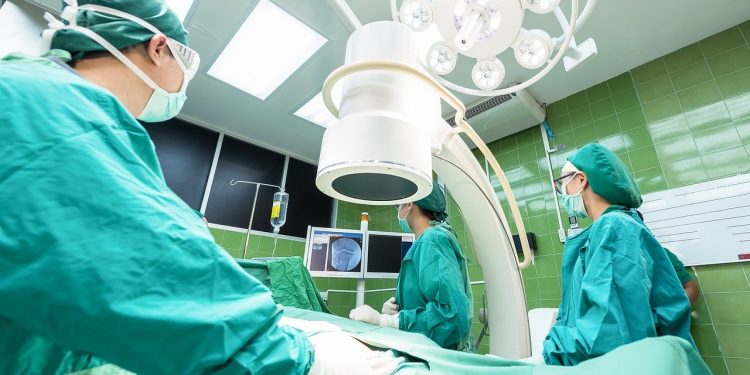The Royal College of Surgeons (RCS) is calling on government to create surgical hubs and commit an additional £1bn every year for the next five years to clear the backlog in operations caused by the pandemic.
The calls feature in the college’s New Deal for Surgery report which makes 12 recommendations, including long and short-term measures designed to improve the future sustainability of surgical services.
The recommendations for government include:
- Continue the £1bn annual Elective Recovery Fund for England for a further five years to tackle the elective surgical backlog.
- Publish an annual report setting out the government’s response to the elective surgery backlog in England.
- Ensure all Integrated Care Systems (ICSs) urgently consider what measures can be put in place to support patients facing long waits for surgery, including the best and most efficient use of new technologies to support this.
- Adopt a long-term aim to increase the number of hospital beds from 2.5 to 4.7 per 1,000 people, in line with the Organisation for Economic Coordination and Development (OECD) average.
- Builds NHS capacity to reduce reliance on the independent sector in the event of future pandemics or crises.
- Widen adoption of the surgical hub model across England for appropriate specialties, such as orthopaedics and cancer.
- Adopt a long-term aim to increase the number of doctors including anaesthetists and surgeons from 2.8 to 3.5 per 1,000 population, in line with the OECD average.
- Continue to ensure staff wellbeing and retention is at the forefront of plans for elective recovery; all trusts to support less than full time working for surgical teams.
‘Colossal backlog in elective surgery’
Professor Neil Mortensen, president of the Royal College of Surgeons of England, said: “We need government support for a new deal for surgery to reduce the colossal backlog in elective surgery and to help the NHS weather future pandemics. Surgery must be available on the NHS all year-round, not stop and start.
“If a dangerous new variant of Covid-19 takes hold, or another bad flu arrives in the autumn, we cannot allow surgery to grind to a halt again or waiting lists will become insurmountable.”
Mortensen described the surgical hub model as the best way to keep treating people who need operations, regardless of future pandemics.
“But it requires being open to doing things differently. Throughout the pandemic, staff have gone wherever they are most needed, working flexibly and collaboratively to put patients’ interests first.
“Our patients have adapted too, with many outpatient consultations happening virtually, by telephone or video.”
But Mortensen added politicians also needed to be open to change.
“They must accept that the services available at their nearest hospital may not be the same as before. Their voters are willing to travel to a surgical hub for an operation, even if it is not the nearest local hospital,” he continued.
“Today we are explaining why it’s key the government and MPs embrace change and commit to longer term investment in surgery.
“The chancellor of the exchequer, Rishi Sunak, promised the NHS ‘whatever it needed’ to fight Covid-19. Looking ahead, sustained investment will be needed every year for the next five years at least, to bring waiting lists down.”






